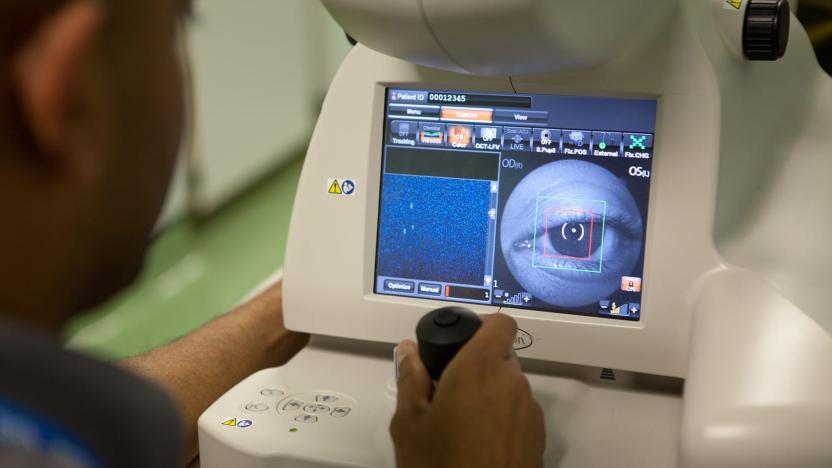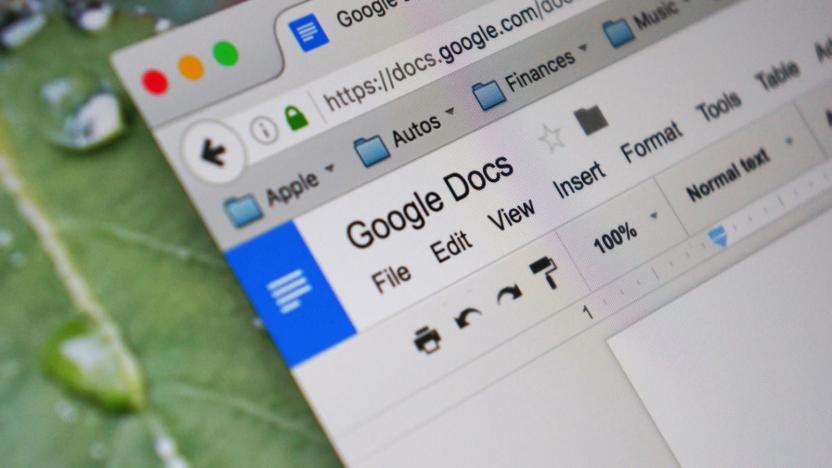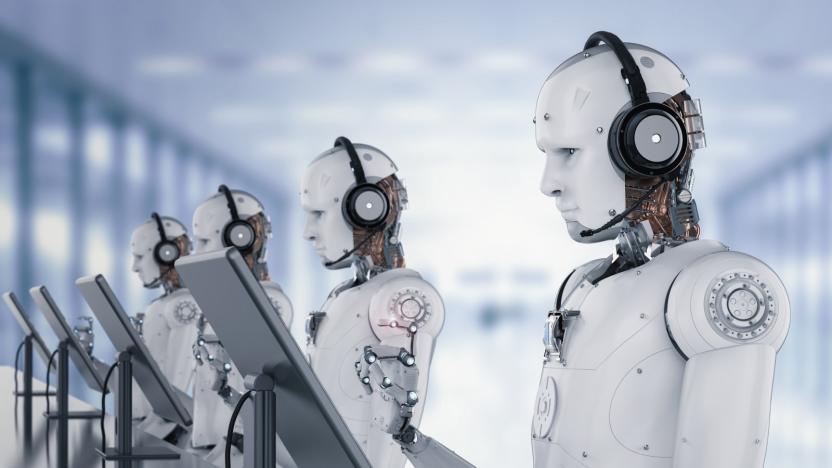TL18AIJB
Latest

DeepMind AI matches health experts at spotting eye diseases
DeepMind has successfully developed a system that can analyze retinal scans and spot symptoms of sight-threatening eye diseases. Today, the AI division -- owned by Google's parent company Alphabet -- published "early results" of a research project with the UK's Moorfields Eye Hospital. They show that the company's algorithms can quickly examine optical coherence tomography (OCT) scans and make diagnoses with the same accuracy as human clinicians. In addition, the system can show its workings, allowing eye care professionals to scrutinize the final assessment.

AI-driven animations will make your digital avatars come to life
Even with the assistance of automated animation features in modern game-development engines, bringing on-screen avatars to life can be an arduous and time-consuming task. However, a recent string of advancements in AI could soon help drastically reduce the number of hours needed to create realistic character movements.

Researchers tap AI for more efficient road maintenance
Potholes are a nuisance pretty much everywhere and the methods traditionally used to keep track of them aren't terribly efficient. Whether it be driving around to visually inspect roads or watching videos of streets to spot and prioritize the repair of pavement damage, strategies typically used by towns and cities require a fair amount of time and labor. But AI could make that process a bit easier and quite a bit faster. One group exploring the use of AI to support the municipal officials in charge of road maintenance has been developing a software system that could not only aid in road repairs but also bridge and building maintenance as well.

Fox AI predicts a movie's audience based on its trailer
Modern movie trailers are already cynical exercises in attention grabbing (such as the social media-friendly burst of imagery at the start of many clips), but they might be even more calculated in the future. Researchers at 20th Century Fox have produced a deep learning system that can predict who will be most likely to watch a movie based on its trailer. Thanks to training that linked hundreds of trailers to movie attendance records, the AI can draw a connection between visual elements in trailers (such as colors, faces, landscapes and lighting) and the performance of a film for certain demographics. A trailer with plenty of talking heads and warm colors may appeal to a different group than one with lots of bold colors and sweeping vistas.

Google Docs uses AI to catch your grammar mistakes
You no longer have to turn to tools like Grammarly if your Google Docs output lacks polish. As part of a sweeping set of updates aimed mostly at G Suite users, Google has introduced grammar suggestions to Docs users involved in its Early Adopter Program. The addition uses machine translation to spot everything from basic grammatical goofs (such as "a" instead of "an") to larger issues with sentence structure, including subordinate clauses. The AI nature of the checker should help it adapt over time and catch "trickier" issues.

'Robot chemist' could use AI to speed up medical breakthroughs
Scientists can only do so much to discover new chemical reactions on their own. Short of happy accidents, it can take years to find new drugs that might save lives. They might have a better way at the University of Glasgow, though: let robots do the hard work. A research team at the school has developed a "robot chemist" (below) that uses machine learning to accelerate discoveries of chemical reactions and molecules. The bot uses machine learning to predict the outcomes of chemical reactions based on what it gleans from direct experience with just a fraction of those interactions. In a test with 1,000 possible reactions from 18 chemicals, the machine only needed to explore 100 of them to predict study-worthy reactions in the entire lot with about 80 percent accuracy.

Google's voice-calling AI could handle your next insurance claim (updated)
It sounds like Google's scary-natural AI voice calling could wind up in a call center. An unnamed insurance company has shown interest in the tech, according to The Information, where Duplex could "handle simple and repetitive customer calls" before handing things over to a human when the conversation gets more complicated. Surely, no one wants to hear "I don't understand that question, but I'm learning more every day" when you're trying to make a claim, let alone asking for a specific song to play.




